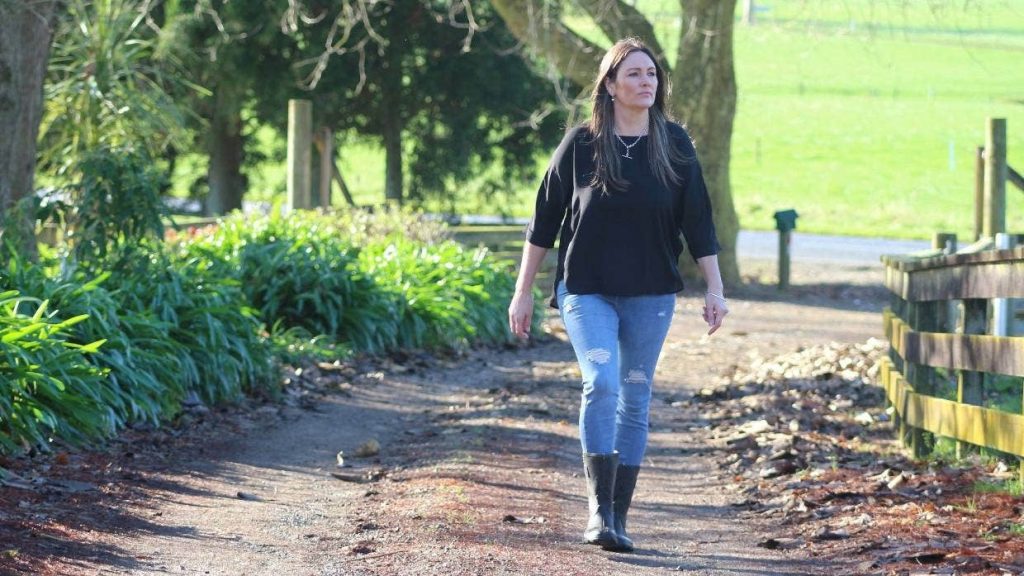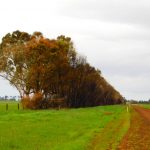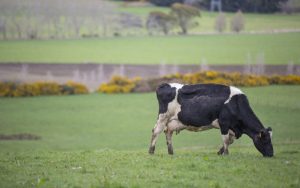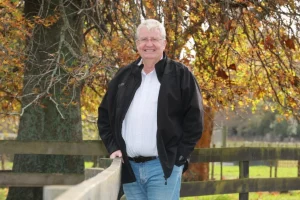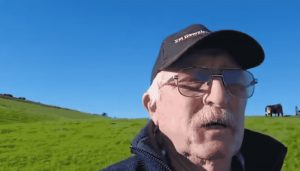
https://media.stuff.co.nz/video/production/1625790828853-STUFF_1.mp4
LAWRENCE GULLERY/STUFF
Te Awamutu woman Lee Smith volunteered to help co-ordinate the Waipā-King Country rally for the Howl of a Protest on July 16.
Mounting regulations on water, the environment, biodiversity, climate change, workforce and now the “ute tax” were appearing as a big stick hitting farmers over the head.
It prompted farm action group Groundswell NZ to organise its “A Howl of a Protest” in towns across the country on Friday, July 16.
Those working on the land and tradies were encouraged to take their tractors, utes and working dogs into town for a peaceful rally to draw public attention to the mounting regulations and costs they faced.
Protests in the Waikato were planned in Waipā-King Country, Morrinsville and Taupō.
Former Taranaki dairy farmer Lee Smith, who now lived in Te Awamutu, put her name down to help organise the Waipā-King Country protest.
“I have seen what’s been happening around the country and I wasn’t prepared to be an armchair critic and just sit back and complain, I thought I would get involved and do my bit.
“The legislation farmers are facing is oppressive and costly, in some cases it’s driven people off the land.
“There have been some sad stories coming through from the phone calls I’ve been taking about the protest.
“One of themes is about the mental anguish that farmers are facing with these regulations.”
Smith was organising groups of farmers to travel from Te Awamutu and Te Kūiti, to meet in the middle at Ōtorohanga.
“We need Central Government to hear what people are saying. These things [regulations] are unworkable for many and there needs to be a common sense approach.”
The “ute tax” was the Government’s Clean Car Package, a rebate scheme which made lower-carbon-emitting cars more affordable and a fee placed on new, higher-emission vehicles, including utes.
Smith said it was “impractical” when an EV alternative to a ute could be years away.
Morrinsville dairy farmer Lloyd Downing agreed. He owned three utes for work and a Toyota Prada for home.
“I wouldn’t mind paying a tax on my Prada or a tax just for SUVs because that wouldn’t affect the cost of production of my farm.”
Dowling milked 500 cows on his property and said he had already fenced off many areas for planting or protection.
But he was worried changes to the “significant natural areas” policy would mean rural farms would be forced to retire more land to protect biodiversity.
“I don’t mind placing land into protection but we’ve got to be compensated for it.”
Dowling was helping to organise the Morrinsville protest.
Farmers planned to meet under the town’s Mega Cow, Mabel, on State Highway 26, where there would be a presentation by former Waikato Federated Farmers President Andrew McGiven.
Labour’s list MP covering Taranaki and King Country Angela Roberts acknowledged the scale and pace of change in the primary sector which had led to farmers wanting to stand together to raise their voice.
She said it was correct that right now people could not go down to their local car dealership and buy a brand new EV ute.
“But what we have to do globally is send a signal that we need to find really good alternatives for our farmers and tradies, and then the world market will respond.
“It’s not just about electric, it’s about hybrid and green gas options as well to build that alternative market.
“If we sit and wait for everything to be lined up, all the charging stations in place, all the green gas and hydrogen power sorted, it will never happen because you have to signal to the market you are open for business.”
National’s MP for Taranaki-King Country Barbara Kuriger planned to be in Ōtorohanga to see the tractors and utes roll into town on Friday.
Kuriger was the party’s spokeswoman for rural communities and said farmers had “a lot of their plate” at the moment.
“They feel they’re not being listened to by the Government and it doesn’t surprise me these rallies are being held around the country.”
She agreed New Zealand needed to cut back its emissions but wasn’t sure how long people should be made to wait for EV alternatives.
https://www.youtube.com/watch?v=kQwTi7Q2TAU&feature=emb_imp_woyt
“People are being asked to pull away from coal burners, gas burners but at the same time our hydro lakes are low and we haven’t had a wind farm built in five years.
“We don’t have the technology to use biogas or hydrogen just yet so we need to look at using gas as a transition fuel otherwise we are going to get stuck for our energy needs.”
Waikato Federated Farmers President Jacqui Hahn, who lived near Te Kūiti, said farmers were tired of “poorly thought” policy, rules and taxes introduced over the past two years.
“Unfortunately numerous Government ministers are intent on getting things through prior to the next election with no thought to how the packages as a whole effect the population.”
Those working in the electric farm vehicle market said interest was picking up but traditional petrol-engine users would be hard to covert.
Switch EV Global Managing Director Gerard Merrick said the Government was targeting the wrong types of vehicles, if it wanted to reduce emissions.
“There are already a lot of controls around utes for emissions, it’s fairly high and also for diesel which is the really bad boy of emissions.
“But smaller light vehicles, such as quads and side-by-sides, there’s very little regulation and if you’re talking about agricultural emissions, tackling the ute is not going to bring real benefits.”
Switch EV, Warkworth, designed and manufactured electric vehicles for farms and orchards.
“The truth is, electric vehicles are expensive and it is going to be hard to move those traditional petrol-engine users over,” Merrick said.
“What I would love to see is more incentives for the work we and others do in this area.”
Tauranga company UBCO which designed electric farm bikes for Kiwis and farmers overseas said interest in its products was mounting.
Its marketing manager Kat Sutherland believed the tide was turning in terms of people moving from fuel to electric modes of transport.
“I don’t know if that’s because of the announcement (Clean Car Package) but we are getting steady enquiries and a lot of that is coming from the rural sector.
“Even if it is controversial, it is raising awareness of electric vehicles overall.”
